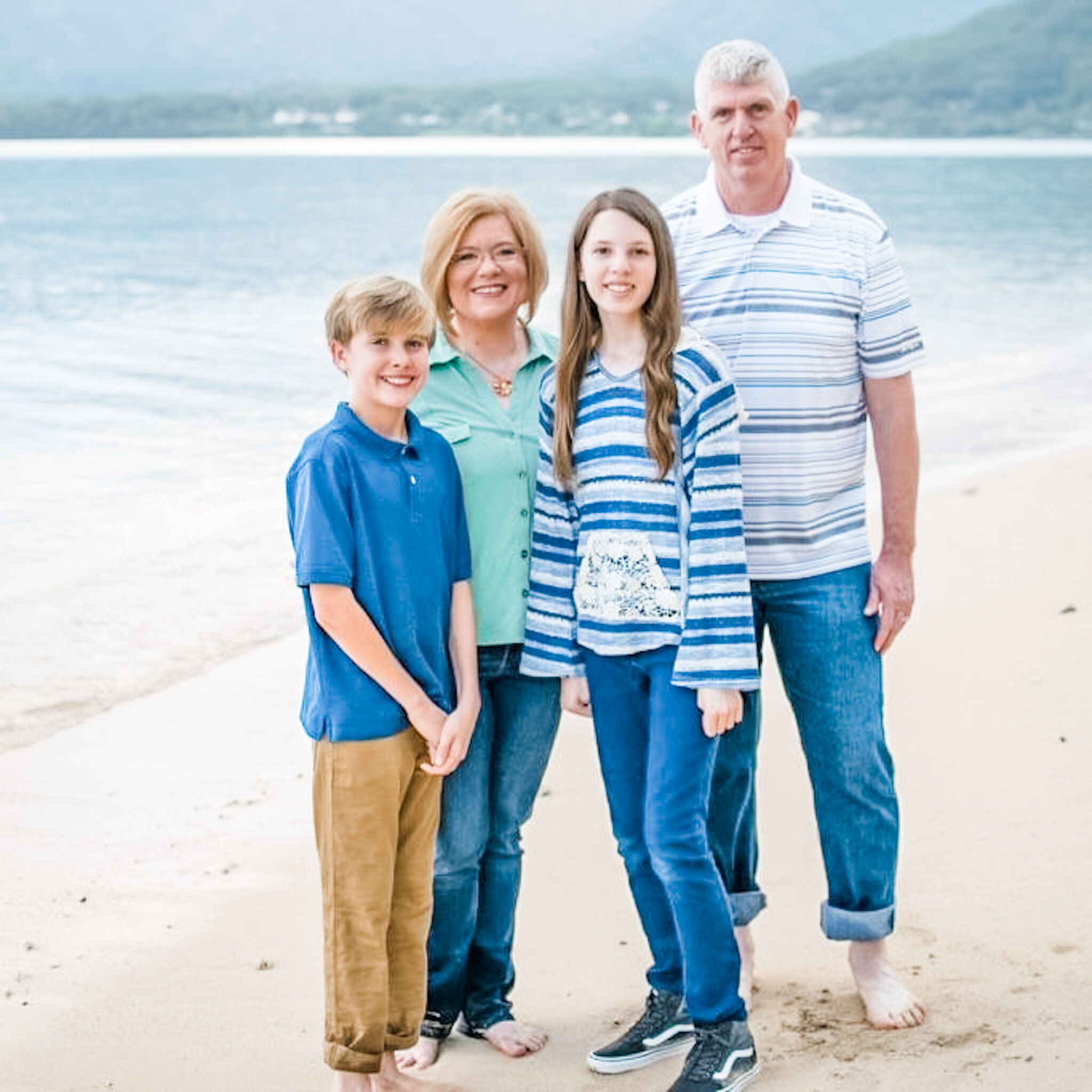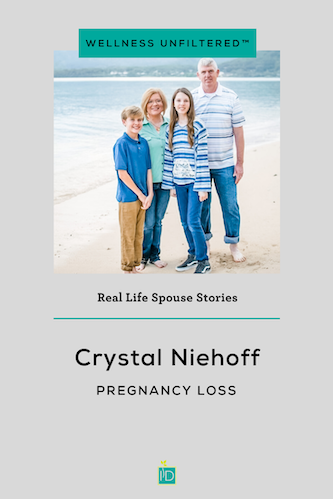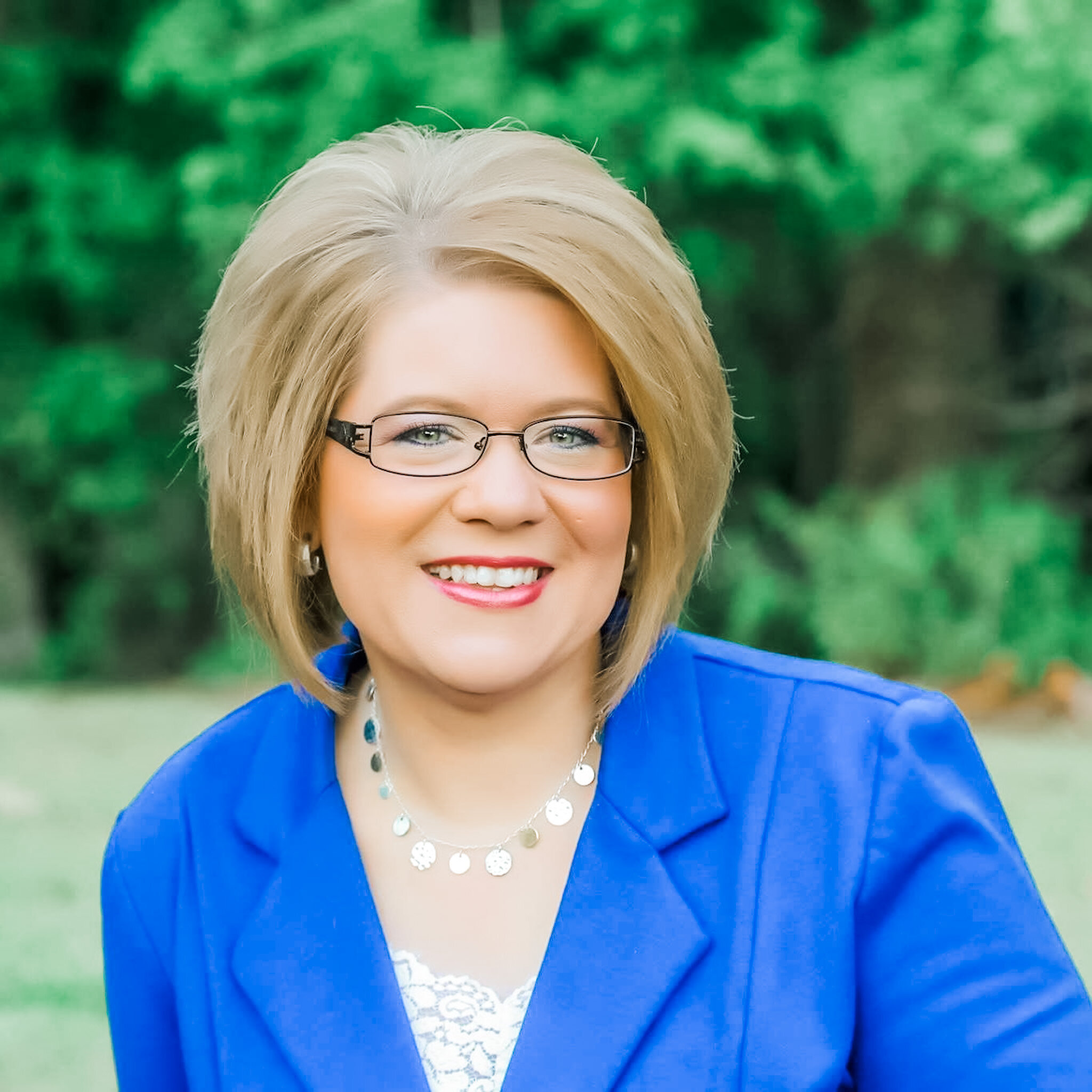Real Life Spouse Story | Crystal Niehoff | Pregnancy Loss
The Real Life Spouse Stories Series is part of our Wellness Unfiltered™ program. It’s a platform for military spouses to share their struggles with tougher wellness topics in a Facebook Live series. They’re sharing these stories to help with their healing, open up conversations so other military spouses know that they aren’t alone, provide resources to people struggling with something similar, and to help the community know how to better help others who are going through difficult wellness issues. Below is an excerpt of Crystal’s feature.
“We can do everything right but bad things still happen.”
Crystal is an Army chaplain wife and mom to five. Personal experience with pregnancy loss and stillbirth, both as a mother and grandmother, instilled in her a heart for serving mothers and families affected by pregnancy loss in any trimester. With a history in child welfare, as well as a foster and adoptive parent herself, Crystal has been supporting families in need for nearly twenty years.
Tell us briefly where you are now in overcoming a tougher wellness struggle.
At this point, we are seven years down the road since my daughter lost twins. I’ve been able to fully grieve the loss of my own child who was lost early in my pregnancy with my second daughter (who was a twin), known as Vanishing Twin Syndrome. It was something that I couldn’t talk about until after my daughter lost her babies, which opened the discussion. I don’t believe that one can necessarily fully heal from a traumatic event, such as the loss of a child, but you learn a new normal. I’ve found healthy ways to cope with the grief, which has lessened with time, and with triggers, such as birthdays, holidays, etc. After seven years, my daughter gathered the courage to try again, and is currently pregnant with twins, now in her twenty-fourth week, and we are very optimistic this time due to a new intrauterine cerclage procedure.
How did your story begin?
Eight years ago, my oldest daughter suffered the stillbirth of her first child, a girl she named Abigail Raine, at twenty weeks of pregnancy. When her husband called me from the hospital to say that Stephanie was going to lose the baby and wanted me to be with her, I was in complete shock. I knew nothing about losing a baby at this stage of pregnancy and I didn’t know what to do. I yelled at God to not take the baby, and at the same time pleaded with Him to let this all be a misunderstanding.
I remembered back when I was seven months pregnant with my second child in 1993, a friend of mine carried her child to term, everything went well with her pregnancy, and there was no reason for concern. She called me early one morning from the hospital to tell me her baby girl was born but that she had inhaled meconium and passed away. She later showed me pictures that she had taken of her baby girl. I thought it was bizarre that she took pictures of her baby, but as I looked through the photos, it struck me how alive the baby looked. It was as though she was just sleeping peacefully, her lips slightly blue. She was beautiful and perfect.
Now, as I prepared to drive the four blocks to the hospital to be with my daughter, those photos of Michelle’s baby girl ran through my mind and I grabbed my camera as I walked out the door. That moment was emblazoned in my mind because it was a turning point for me. What I thought as strange, even morbid, all those years ago, I suddenly understood and would embrace even more in the coming days.
Upon arriving at the hospital, my heart was beating wildly. Here I am the mother of an adult child who is losing her own child and begging for me to hurry to get to her side. I felt such an overwhelming sense of helplessness, like nothing I had ever felt before. I prayed desperately for my granddaughter to live, for this all to be a horrible mistake. I wanted to be able to do something, anything, to take this trauma away from my daughter and to keep my granddaughter alive. But, this time, I couldn’t kiss her owie and make it better. There was nothing I could do but simply be there with her.
The following year, we rejoiced when my daughter became pregnant with twins! I went with her to every ultrasound and OB appointment that I could. Sadly, we were devastated when Isabella and Isaiah were stillborn a year and a week to the day after Abigail had passed away. The twins were stillborn at twenty-one weeks gestation due to a uterine infection from the cerclage my daughter had to try to carry the babies to term. My daughter became septic and we almost lost her as well.
Can you identify a turning point when you recognized you needed help? What led you to that moment?
After Abigail was stillborn, I quickly learned that there wasn’t a lot of information out there about miscarriage and stillbirth, and even fewer people who would talk about it. It was one of those subjects that people wanted you to just get over and move on from. I searched for support for my daughter and to learn how to help her myself, but I felt like resources were very limited. Finally, after the twins were stillborn, I happened upon StillBirthday.com and Heidi Faith, and discovered a wealth of information!
A few years later, and after I was much stronger and had found my new normal, Heidi started a birth and bereavement doula training program. When I felt I was emotionally ready, I went through the program and became a certified birth and bereavement doula and then went on to certify as a birth and bereavement chaplain.
What was the most difficult aspect of coping with this situation and how did you overcome it?
I feel that you don’t really get over pregnancy loss, you learn a new normal. For me, my strength came from helping my daughter and my other children come to terms with the losses, and by finding ways to mark the lives of Abigail, Isabella, and Isaiah.
We had funeral services for the babies. My youngest daughter (who was just seven at the time) wrote notes and drew pictures to them that we put in a little mailbox I created to send them to Heaven. We released pink and blue balloons to heaven with their names and short messages written on them. I put together a keepsake box for my daughter consisting of the babies’ hospital caps, blankets, footprints, hospital bracelet, etc. Much like you would for your living child. It sits on a shelf now, not looked at as frequently as it once was, but it’s there. Which brings me comfort to know that we won’t forget them – as if we ever could.
And I took pictures of the babies, of the babies with my daughter and her husband, and with me. Oh how I learned an empowering lesson on the importance of these things as a way to journey through trauma and grief. I also later learned that taking photos of the deceased was something the Victorians practiced for all ages. Back then, you might have one picture taken of you during your lifetime to leave to your family. So, when they passed, many of them in early life, they took a photo of the deceased as a way of mourning and remembering.
What is the most helpful and nurturing thing somebody can say to you now when you tell them your story?
The most helpful thing, for me, was for someone to listen or to just be with me in the silence. No judgement or trite words, like “She’s young, she can try again,” or “It was God’s will.”
How can our community best support you right now?
My hope is that by sharing my story that it will begin a conversation about pregnancy loss and how it affects the whole family. Not only were my daughter and her husband in mourning, even my two youngest, the aunt and uncle, who were seven at the time, were grieving as well.
Statistically, one in four women will suffer a miscarriage. With so many women and families affected, we need to do a better job at talking about it and supporting those who have gone through it. You don’t just move on. You go through the same grieving process as anyone else who’s lost a loved one. It takes time and you never completely heal from losing a child. You find a new normal.
How do you cope with hard days or seasons?
My faith and knowing that I will see them again one day. And supporting others through their journey of bereavement.
What do you see the future holding for you as you move forward?
Now that I’m a military spouse, I’ve seen how pregnancy loss for a military family poses unique challenges. Often extended family lives miles away and may not be able to be there to offer support. Mom may even go through the loss completely alone with her husband deployed (or because she’s deployed). How do you memorialize the baby? Where do you bury the baby when they will be PCSing in a year or so? What other options are available to them?
If a military spouse is going through this right now, what resources should he or she turn to for help?
They may contact me or visit my Heartstrings Ministries website. Other resources include:
Now I Lay Me Down to Sleep for photography with a stillborn
I recommend visiting with a chaplain or MFLC (Military and Family Life Counselor)
Sufficient Grace Ministries: Perinatal Hospice & Bereavement Support
Bastian’s Bears Facebook Group
Looking back, what is something positive that has come out of your experience?
I feel that my daughter and I have a much closer relationship and our family values one another so much more. We know firsthand how short life is and we’re not guaranteed to live to a ripe old age. I also hope that I’ve been able to make a difference in other’s lives through educating chaplains about pregnancy loss and through the work I’ve done with grieving families.
About Crystal
Crystal Niehoff is married to her best friend, Army Chaplain Kevin Niehoff and is the proud mom of five and grandma of three. She volunteers with InDependent as a content editor. She is the former owner and chief executive officer of Army Wife Network and host of Army Wife Talk Radio and AWN TableTalk. She holds degrees in Child Development and Business Administration, previously working in child welfare as a crisis specialist and family support worker and is certified to teach the Strengthening Families program. Additionally, Crystal holds certifications as a Christian Minister from Logos University and StillBirthday (SBD) Birth & Bereavement Doula® and Chaplain. Her e-book, Dads & Bereavement, may be obtained through StillBirthday.com.














